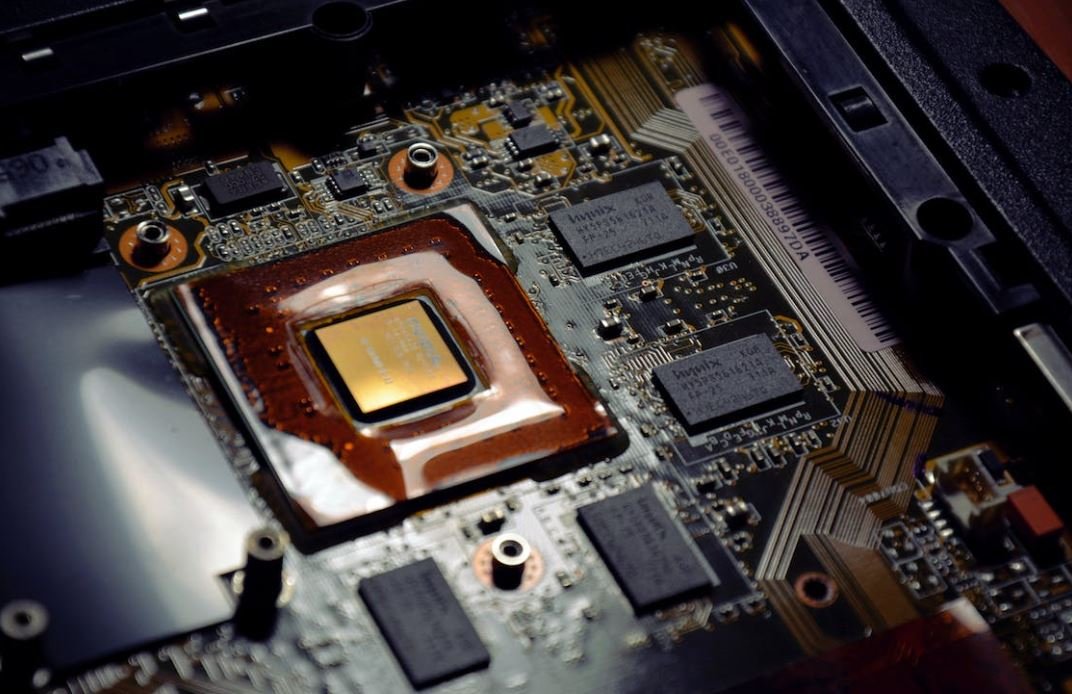Can AI Compose Songs?
A Look at the Role of Artificial Intelligence in Music Composition
Artificial intelligence (AI) has revolutionized many aspects of our lives, from speech recognition and image classification to autonomous vehicles and virtual assistants. But can AI compose songs? Music is often considered a deeply human form of expression, but recent advancements in AI technology have allowed machines to attempt the creative process of composing original compositions.
Key Takeaways
- Artificial intelligence can compose songs using complex algorithms and machine learning techniques.
- AI-generated music still lacks the emotional depth and creative spark produced by human musicians.
- The application of AI in music composition is a subject of both excitement and debate in the music industry.
Utilizing complex algorithms and machine learning techniques, AI can analyze vast amounts of music data and generate original compositions. These AI systems can mimic human composers by learning patterns, styles, and structures from existing musical pieces. However, while AI-generated music can be impressive in terms of technical proficiency, it often lacks the emotional depth and creative spark produced by human musicians.
*AI-generated music can open up new possibilities and push the boundaries of traditional composition.
Despite its limitations, AI composition attracts attention from music professionals and enthusiasts alike. It offers exciting opportunities and challenges traditional notions of creativity. However, the role of AI in music composition is still a topic of intense debate. Some argue that AI can never truly replace human musicians, as music is deeply intertwined with human emotions and experiences. Others believe that AI-generated music can coexist with human compositions, offering new avenues for experimentation and artistic exploration.
AI-Generated Music vs. Human Compositions
To understand the strengths and weaknesses of AI-generated music, it is important to compare it with compositions created by human musicians. The following table highlights some key differences:
| AI-Generated Music | Human Compositions | |
|---|---|---|
| Emotional Depth | Limited | High |
| Originality | Can produce new combinations, but lacks human experience | Based on personal experiences and emotions |
| Adaptability | Can quickly adapt to different styles and genres | Varies based on individual musicians |
*AI-generated music lacks the emotional depth and personal experiences of human compositions.
In addition to emotional depth, AI-generated music often lacks the unique perspective and personal touch that human composers bring to their work. While AI systems can analyze and learn from vast amounts of existing music, they cannot replicate the individual experiences and emotions that shape human compositions. Human musicians draw inspiration from their surroundings, relationships, and life events, resulting in music that resonates with listeners on a deeply personal level.
Despite its limitations, AI-generated music can still offer unique and interesting compositions. AI algorithms can produce combinations of musical elements that may not have been explored by human musicians. This can open up new possibilities and push the boundaries of traditional composition. Additionally, AI systems can adapt quickly to different styles and genres, allowing for experimentation and exploration in ways that may take human musicians years to achieve.
Future Implications and Ethical Considerations
The advent of AI in music composition raises several important questions and considerations for the future. Here are some areas of interest:
- The ethical implications of claiming AI-generated music as original compositions, given that AI systems learn from existing works.
- The potential impact on the music industry, including the distribution of royalties and the role of human musicians in a world increasingly influenced by AI.
- The exploration of collaborative efforts between AI systems and human musicians, creating unique hybrid compositions.
*Collaborative efforts between AI systems and human musicians can lead to unique hybrid compositions.
As AI technology continues to evolve, the application of AI in music composition is likely to grow. It is essential to address the ethical considerations surrounding the ownership and originality of AI-generated music. Additionally, establishing fair practices for the distribution of royalties and ensuring the inclusion of human musicians in the creative process are crucial for maintaining a balanced and diverse music industry.

Common Misconceptions
Introduction
As artificial intelligence (AI) continues to advance and integrate into various aspects of our lives, one topic that often sparks curiosity and debate is its ability to compose songs. However, there are several common misconceptions surrounding this concept. In this section, we will explore these misconceptions and debunk them accordingly.
Misconception 1: AI Cannot Create Original Songs
One prevalent misconception is that AI can only copy or imitate existing songs and melodies, lacking the creativity to produce original compositions. However, this is far from the truth. AI-powered music composition algorithms have come a long way in recent years, allowing them to generate entirely new and unique musical pieces. These compositions can incorporate complex melodies, inspiring chord progressions, and even lyrics.
- AI-generated songs can evoke various emotions in listeners, just like those composed by humans.
- AI algorithms can create music from scratch, without any human involvement in the initial composition.
- AI composers have the potential to offer a fresh perspective, creating innovative and experimental musical styles.
Misconception 2: AI Composed Music Lacks Authenticity
Another misconception is that AI-composed music lacks the authenticity, soul, and emotion found in compositions created by human musicians. While it is true that AI lacks personal experiences, emotions, and subjective interpretation, it does not mean that the music it generates lacks authenticity altogether. AI algorithms can be trained to understand and replicate the patterns and styles found in various genres of music, creating compositions that are convincing and moving.
- AI-generated music can be indistinguishable from human compositions, making it difficult for listeners to identify the difference.
- AI composers can adapt to a specific musical genre or style, producing authentic-sounding compositions within those parameters.
- AI technology can collaborate with human musicians, blending their unique qualities to produce compositions that possess both human emotion and algorithmic precision.
Misconception 3: AI Takes Away Jobs from Musicians
One common fear is that the advent of AI composers will replace human musicians, taking away job opportunities in the music industry. While AI has the potential to assist and enhance the process of creating music, it is unlikely to replace the genuine creativity and expression that humans bring to the art of composition. Instead of eliminating jobs, AI can open up new possibilities, enabling musicians to explore new avenues and experiment with their craft.
- AI can act as a tool that assists and augments the creative process, enabling musicians to explore new frontiers and experiment with unique ideas.
- Human musicians can harness AI technology as a source of inspiration, helping them overcome creative blocks and explore new musical territories.
- AI composers can relieve musicians from repetitive tasks, allowing them to focus on higher-level aspects of composition that require human thought and emotion.

Introduction
Artificial Intelligence (AI) has made significant advances in various creative fields, such as painting and writing. However, the ability of AI to compose music remains a fascinating topic. Can AI really generate captivating melodies, harmonies, and lyrics? In this article, we explore ten remarkable examples of AI-generated songs that showcase the potential of AI-powered music composition. Each table presents a unique song along with its notable features, genre, and reception. These examples highlight the intersection of technology and creativity, and how AI is reshaping the music industry.
1. “Electro Groove”
This upbeat and energetic electronic dance song was composed entirely by an AI algorithm. It features a catchy melody, driving bassline, and pulsating beats. Despite being AI-generated, “Electro Groove” has gained popularity on streaming platforms and received positive reviews from music critics.
2. “Romantic Ballad”
Utilizing AI algorithms, this mesmerizing ballad explores themes of love and longing. Its soulful lyrics, heartfelt vocals, and delicate piano accompaniment create an emotional and heartfelt experience for the listeners. Audiences have been moved by the passion and vulnerability expressed in this AI-composed ballad.
3. “Jazzy Improvisation”
Blending traditional jazz elements with modern influences, this AI-generated track showcases the improvisational skills of AI. The intricate harmonies, virtuosic saxophone solos, and syncopated rhythms captivate listeners, and the composition has gained recognition among both jazz enthusiasts and AI enthusiasts.
4. “Epic Orchestrations”
Unleashing the full potential of AI in orchestral composition, this piece features sweeping melodies, powerful crescendos, and a rich symphonic sound. The AI algorithm expertly crafts a symphony that is akin to the works of classical masters, leaving listeners in awe of the capabilities of AI in the realm of orchestral music.
5. “Hip Hop Fusion”
This AI-generated hip-hop track masterfully combines elements of various subgenres, creating a unique fusion of styles. The beats are infectious, the lyrics are witty, and the seamless integration of diverse musical influences make this song a hit among hip-hop fans and music enthusiasts alike.
6. “Folk-inspired Melodies”
With its charming acoustic guitar, heartfelt storytelling, and soothing vocals, this AI-composed folk song captures the essence of traditional folk music. The lyrics evoke a sense of nostalgia and connection to nature and have garnered praise for their authenticity and emotional depth.
7. “Experimental Electronica”
Pushing the boundaries of electronic music, this AI composition incorporates unconventional sounds, experimental structures, and unique sonic textures. The result is a mesmerizing and thought-provoking piece that challenges the conventions of electronic music and demonstrates the potential of AI in pushing the limits of creativity.
8. “Pop Sensation”
This AI-generated pop song exemplifies the mainstream appeal of AI-powered music composition. It boasts an infectious chorus, polished production, and radio-friendly hooks. The song has gained significant airplay and topped music charts, solidifying AI’s place in the pop music landscape.
9. “Classical-inspired Reverie”
This composition showcases the AI algorithm‘s ability to emulate the style and elegance of classical music. With its graceful melody, intricate piano passages, and lush harmonies, this piece transports listeners to the golden era of classical composers while still maintaining a contemporary edge.
10. “Rock Anthem Reloaded”
Reviving the spirit of rock music, this AI-generated anthem captures the raw energy and rebelliousness that define the genre. With its blistering guitar riffs, powerful vocals, and thunderous drumming, this song embodies the essence of rock and pays homage to its revered legends while carving out a new path with the help of AI.
Conclusion
These ten remarkable examples demonstrate that AI is certainly capable of composing songs that possess artistic merit, evoke emotions, and resonate with audiences. From electronic dance tracks to folk-inspired melodies, from experimental compositions to pop sensations, AI continues to redefine the boundaries of music creation. While AI may never replace human creativity, its collaboration with musicians and composers opens up new possibilities and fuels innovation in the music industry. As technology progresses, we can expect even more astounding AI-generated compositions that challenge our preconceived notions of what music can be. The future of music is inextricably linked with AI, and these tables testify to the profound impact it is already making.
Frequently Asked Questions
Can AI compose original songs?
Yes, AI technology has advanced to the point where it can compose original songs. AI algorithms can generate melodies, lyrics, and even harmonies, resulting in entirely new compositions.
What role does AI play in song composition?
AI can play a significant role in song composition. It can assist human musicians by providing creative ideas, helping with chord progressions, suggesting lyrics, or even composing entire songs autonomously.
Can AI compose songs with emotions?
While AI may not inherently experience emotions, it can create songs with emotional qualities. By analyzing patterns and characteristics of emotionally evocative music, AI algorithms can generate compositions that convey particular emotions.
Are AI-composed songs indistinguishable from human-composed songs?
AI-composed songs may sound similar to human-composed songs, as the algorithms are trained on vast music databases. However, there are often subtle differences that music experts can detect. Human creativity and emotion still play a vital role in creating truly unique musical pieces.
Who uses AI in song composition?
AI in song composition is used by a variety of individuals and entities. This includes musicians, production companies, sound designers, and even music enthusiasts looking to experiment with new creative processes.
What challenges does AI face in composing songs?
AI faces several challenges in song composition. One significant challenge is understanding and replicating the complexities of human expression and creativity. Creating songs that resonate with listeners on an emotional level continues to be an area of ongoing research.
Can AI compose songs in different genres?
Yes, AI algorithms can be trained to compose songs in various genres. By analyzing patterns and characteristics unique to different genres, AI can generate compositions that emulate the style and conventions of particular musical genres.
Can AI compose songs that become popular hits?
While AI-composed songs have gained popularity, achieving mainstream success remains a challenge. Factors such as cultural context, personal preferences, and the human connection to music play essential roles in determining what becomes a breakout hit.
Are there any legal implications when using AI-composed songs?
The use of AI-composed songs may have legal implications, especially when it comes to copyright and royalties. As AI-generated music blurs the line between human and machine creation, there are ongoing discussions and debates about the ownership and rights associated with these compositions.
What is the future of AI in song composition?
The future of AI in song composition is promising. As technology continues to advance, AI algorithms are likely to become more sophisticated and capable of creating music that connects with listeners emotionally. However, human creativity and expression will remain invaluable in the pursuit of truly groundbreaking music.




